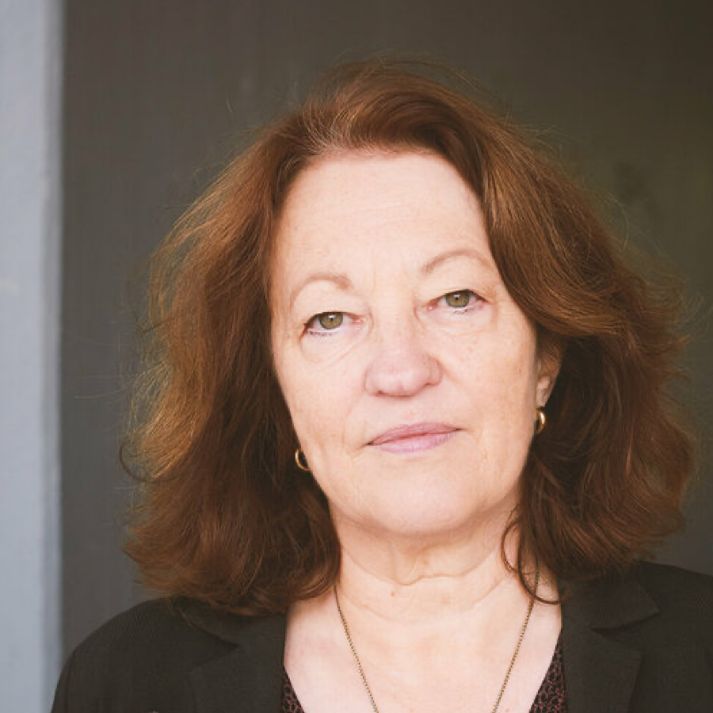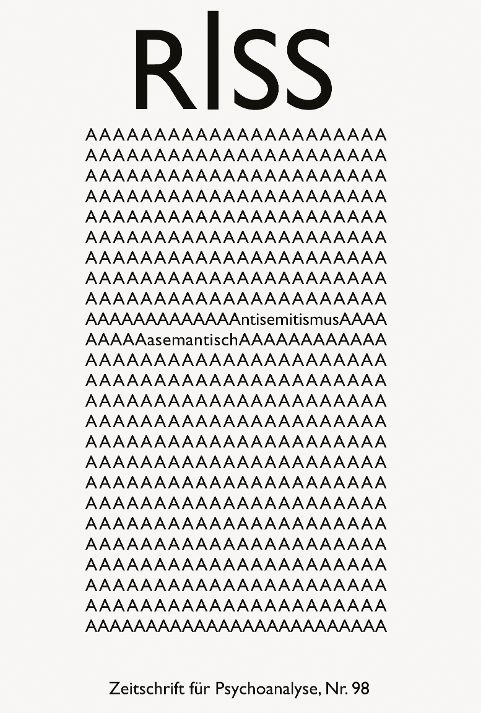

„Anti-Semitism“ does not cease to take on different forms.
We invite you to the next Jewish Salon in the Green Salon of the Volksbühne to deal with this extremely complex perpetual phenomenon.
AAAAAAAntisemitismus. Asemantisch
That’s the name of the new magazine, #98, RISS. Journal of Psychoanalysis, which tries to recognize something of this.
With Stephanie Schüler-Springorum – Director of the Center for Research on Antisemitism at TU Berlin in conversation with some of the authors of the magazine.
The crucial difficulty in writing „about anti-Semitism“, in addressing it, lies in the fact that there is no position from the outside from which to speak. Failing to recognize this also seems to be a problem in many initiatives that denounce anti-Semitism as linguistic and physical violence in everyday life in (not only) Germany. There is often a need to define what is considered anti-Semitic and what is not. However, such definitions pose further problems. After all, how do we address something that haunts us as a central and at the same time extremely decentered, scattering, centuries-old and red-hot problem?
The attempt to finally get a clear grip on anti-Semitism is part of the problem. The desire to eliminate what has been interpreted is a phantasm that is still connected at one point with the anti-Semitic phantasm that the „Jew“ is „the root of all problems“.
The attack on the synagogue in Halle on Yom Kippur, October 9, 2019, was the trigger for the magazine. A »Halle dossier« thus forms the prelude to the issue. The editorial team invited thinkers, psychoanalysts and intellectuals to engage with excerpts from the almost 1000-page transcripts of the Halle Trial. The association democ. Zentrum Demokratischer Widerspruch e.V. (Center for Democratic Contradiction) prepared this document. Micha Brumik, Max Czollek, Marie Griesheimer, Regina Karl, Larissa Krampert, Elad Lapidot, Christian Obermüller and Sonia Simmenauer accepted the invitation, as well as contributions from the editorial team. The result is a polyphonic idiosyncratic glossary: a kind of echo chamber in which the language of the process echoes differently, more shrillly.
Prof. Dr. Stefanie Schüler-Springorum is a historian and has headed the Center for Research on Antisemitism at TU Berlin since 2011. After studying Medieval and Modern History, Ethnology and Political Science in Göttingen and Barcelona, she received her doctorate in 1993 with a dissertation on the Jewish minority in Königsberg/Prussia from 1871 to 1945. From 2001-2011 she was director of the Institute for the History of German Jews in Hamburg, from 2009-2019 chairwoman of the Scientific Working Group of the Leo Baeck Institute in the Federal Republic of Germany and since 2012 co-director of the Selma Stern Center for Jewish Studies Berlin-Brandenburg. Her fields of research are german-Jewish history, the history of National Socialism and the Holocaust, as well as Spanish history. A gender-historical perspective determines all her work.
RISS Zeitschrift für Psychoanalyse Bd. 98 • ISBN: 978-3-86485- 292-3
Hg. Karl-Josef Pazzini, Marcus Coelen, Judith Kasper, Mai Wegener
www.risszeitschriftfuerpsychoanalyse.org
textem-verlag.de/textem/magazine/riss/532
Orders to: bjoern.hartwig@textem.de
Hamburg 2023
Event website: www.salon-ich.berlin/programm/aaaaaaantisemitismus-asemantisch
- 01:00Grüner Salon
Jüdischer Salon • Antisemitismus: Unbewusst